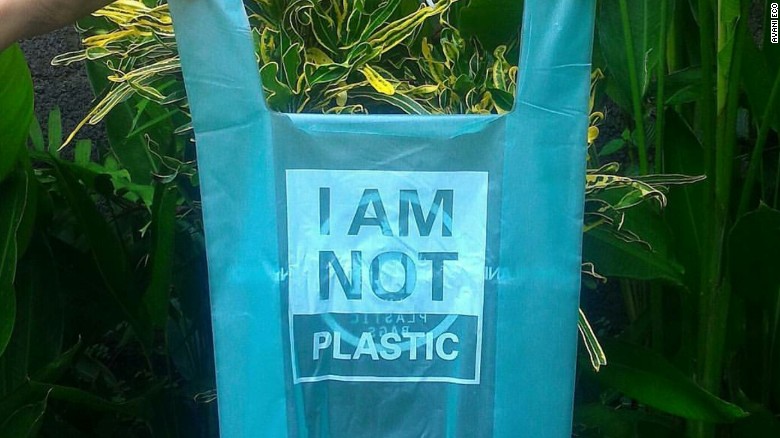For every beautiful island around the world, there is a dark and disgusting problem- millions of plastic bottles, caps, bags, etc. strewn all over the shores, littering the beach. Plastic pollution is now threatening to make these beautiful spaces disappear altogether.
But this crisis had a spec of hope in an inspired surfer in Bali named Kevin Kumala, “I was with a friend sitting outside a bar and we were seeing hundreds of motorcyclists wearing vinyl ponchos,” he recalls. “It clicked that these disgusting, toxic ponchos would be used a few times and then discarded, but they would not decompose.” And as luck would have it, Kumala was a biology graduate and he resolved to create a better plastic, that would leave no trace.
From the article:
“Kumala and his school friend partner studied the emerging field of bioplastics, and took inspiration from new materials based on corn and soy starch. They devised their own recipe using cassava starch, vegetable oil, and organic resins.
The resulting “100% bio-based” material was biodegradable and compostable, breaking down over a period of months on land or at sea, or instantly in hot water. Kumala claims the bioplastic leaves no trace of toxic residue, a point he demonstrates by dissolving and drinking it.”
Drinking it proved that the bioplastic would be harmless to sea animals and therefore, the environment (it helped that it had passed an oral toxicity test, too). And so, in 2014 he launched Avani Eco and made cassava-plastic ponchos. But today the company produces four tons of material a day to create plastic bags, food packaging, and covers for hospital beds. In fact, Avani’s factory has the ability to produce five times as much plastic, and they hope to.
And to see this new industry take hold, it will need the buy-in from governments.
Kumala says, “The notion of reduce, re-use, recycle has always been preached, but it is crucial to complement this with the notion of ‘replace.’ We are not antagonistic to reduce, re-use, recycle but it needs a mental revolution to carry out. We believe governments need to support the idea of replacing plastic.”
We agree. What do you think? Would you be willing to pay a bit more for your plastic bags if it meant we could help save our oceans?
Source: CNN












